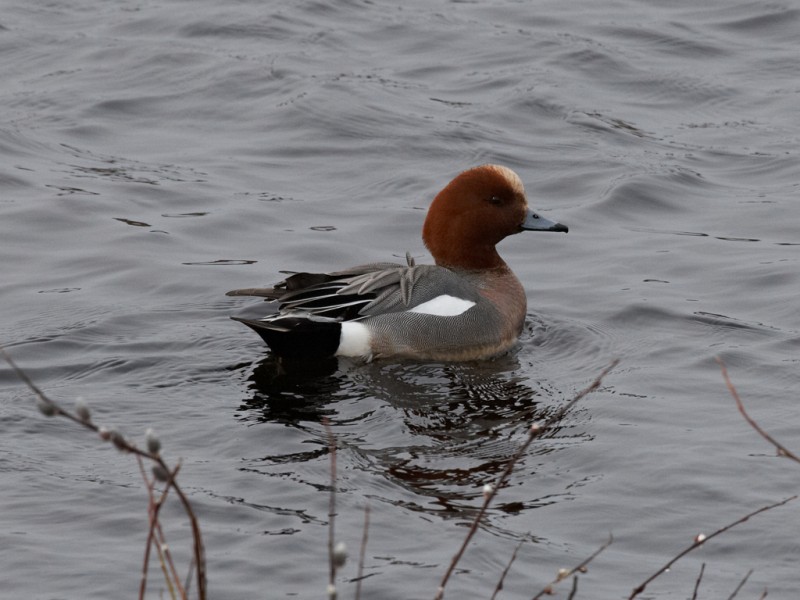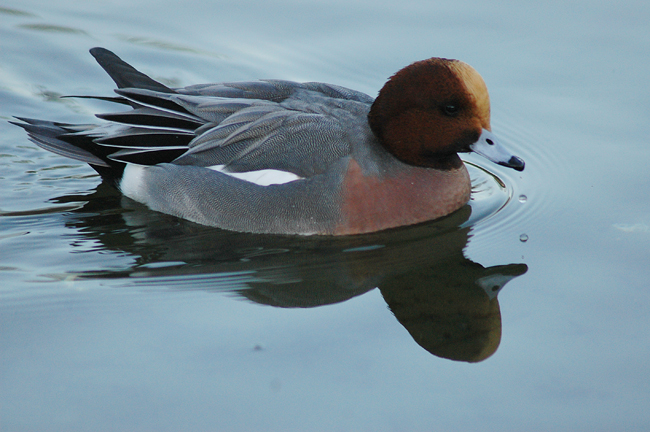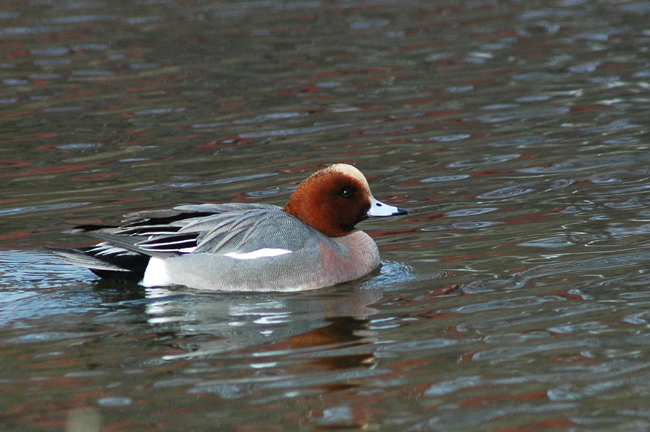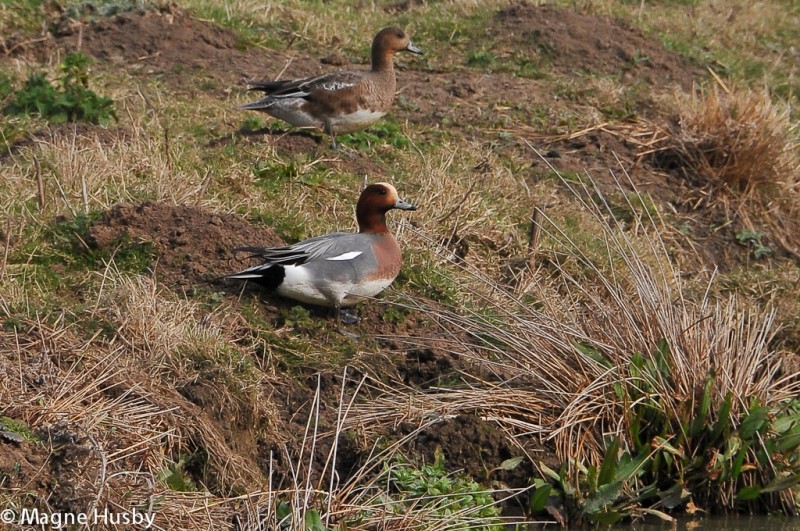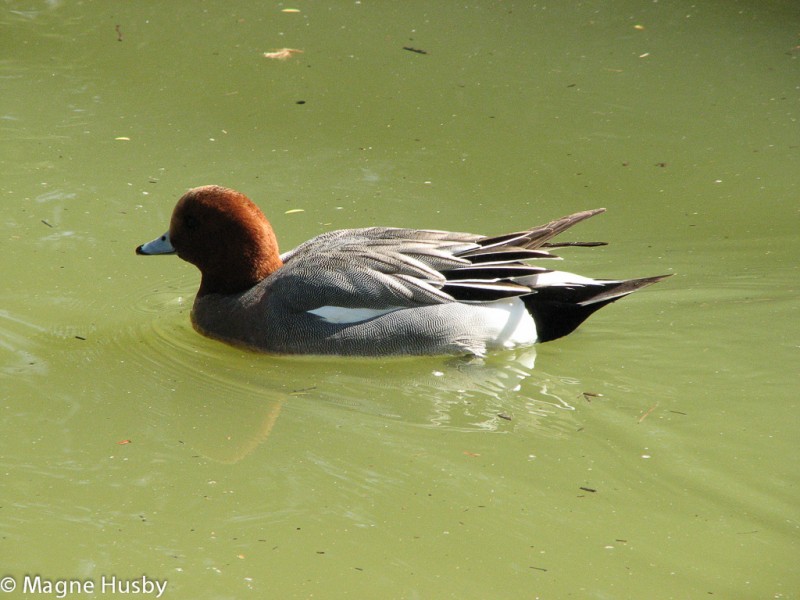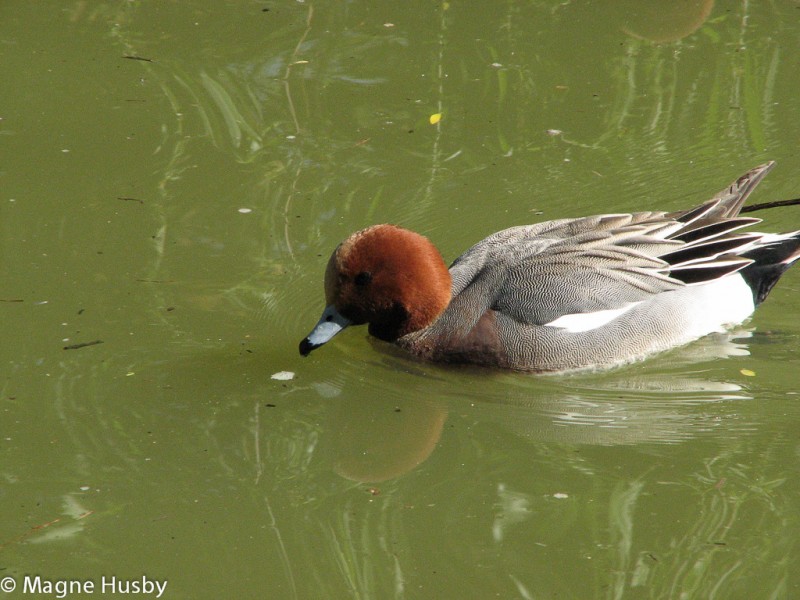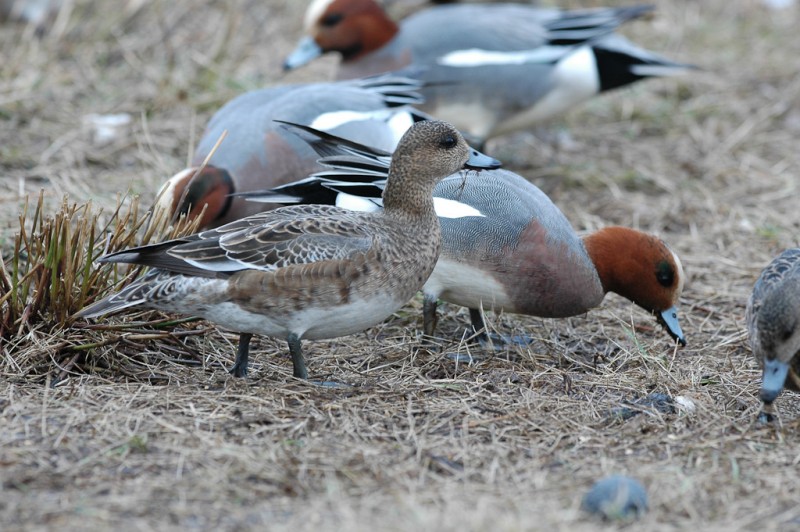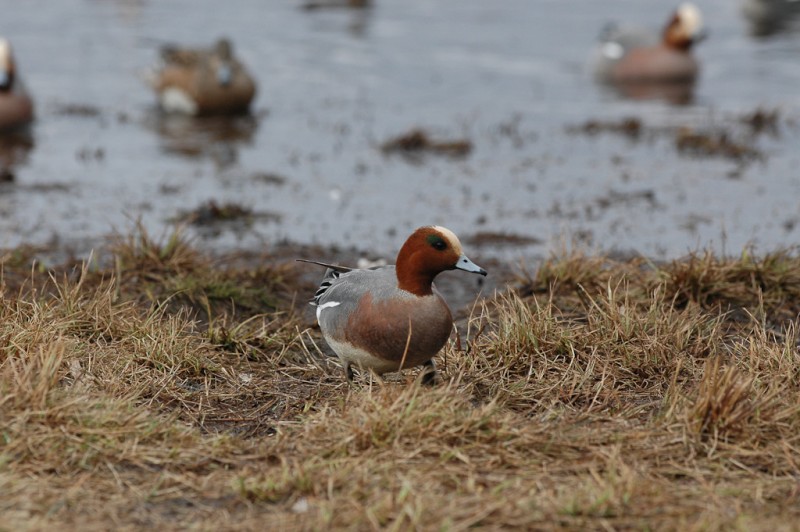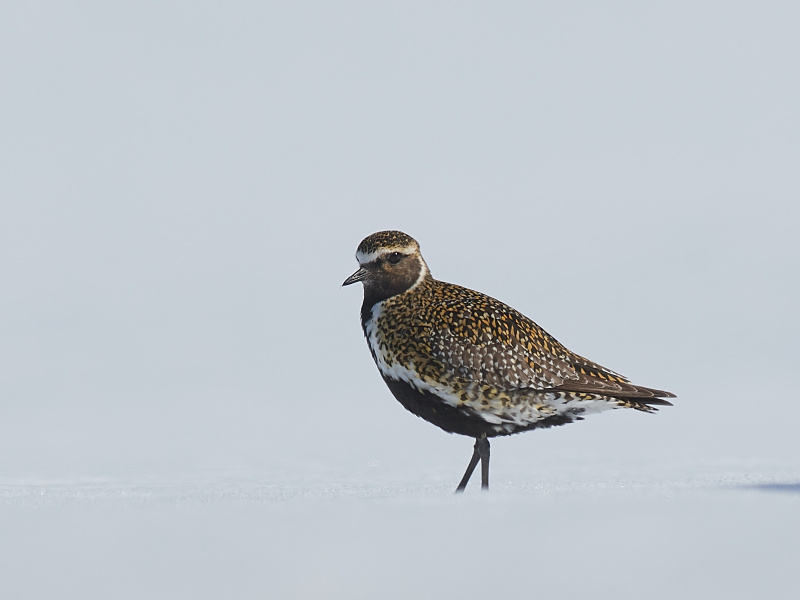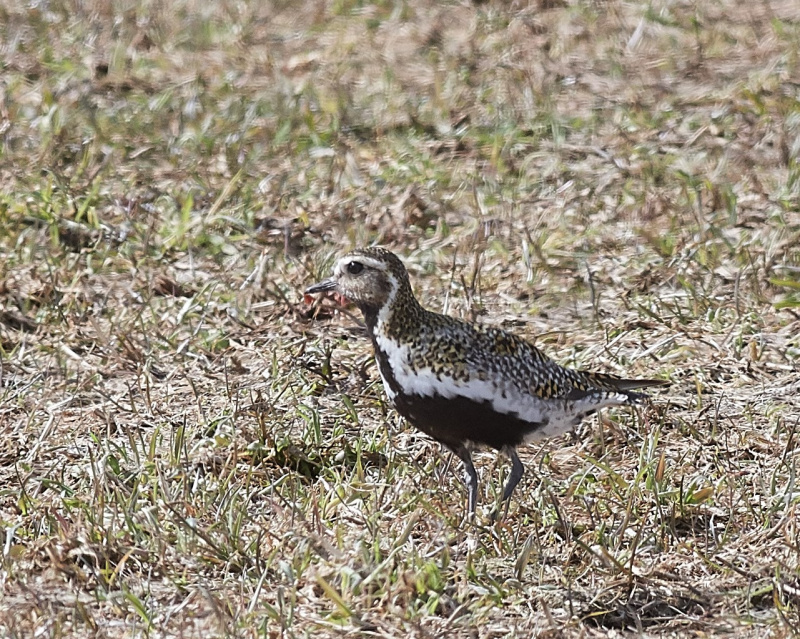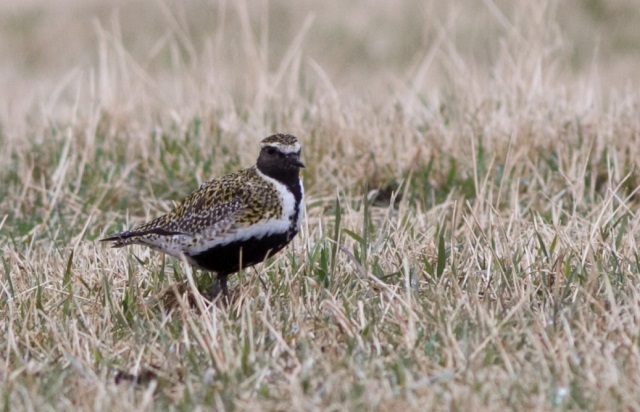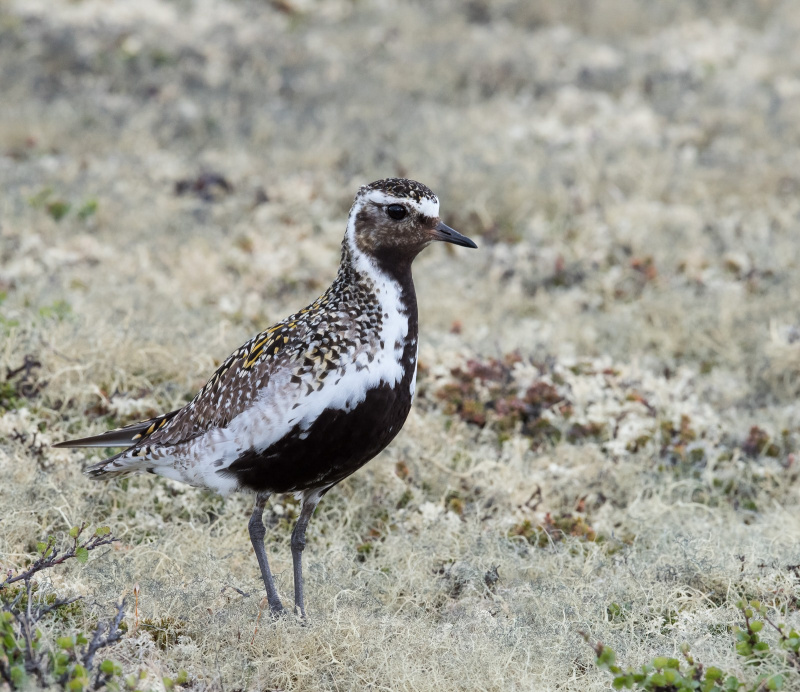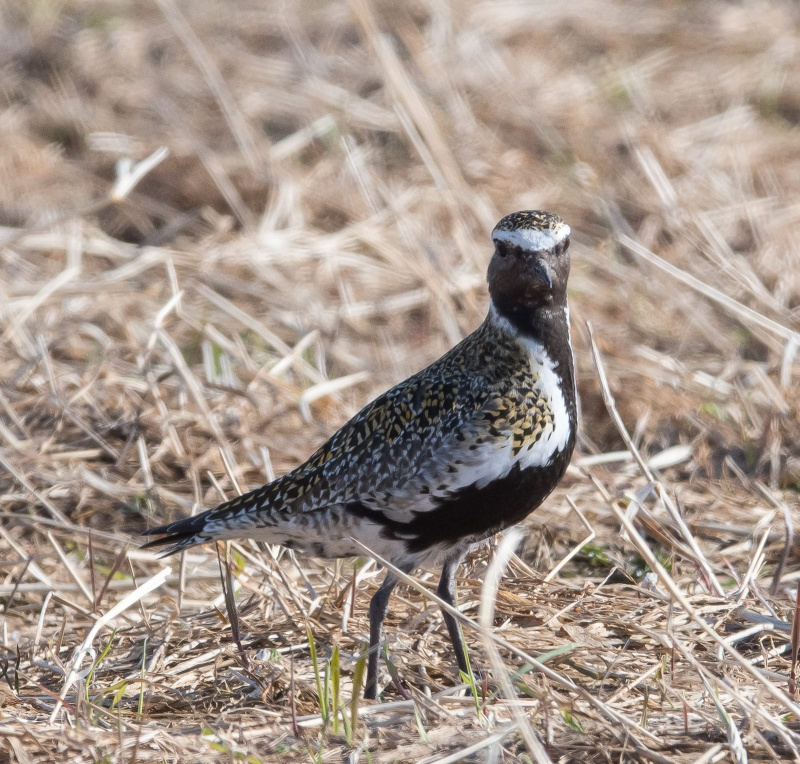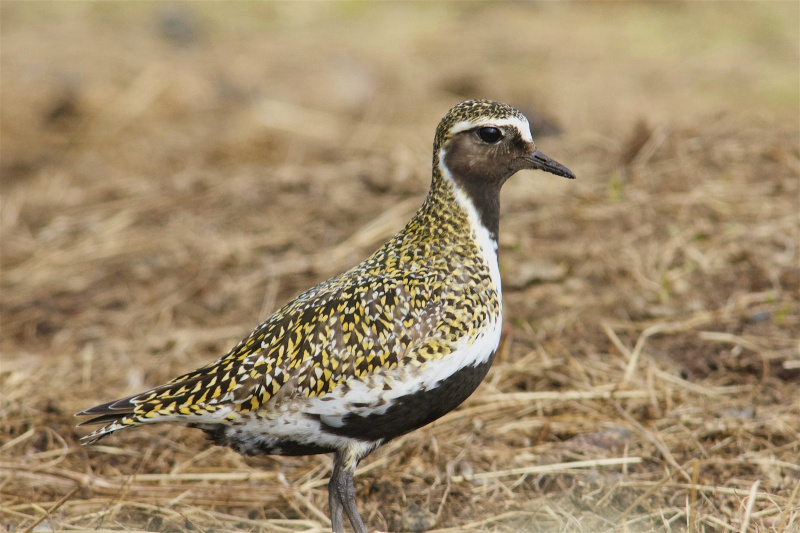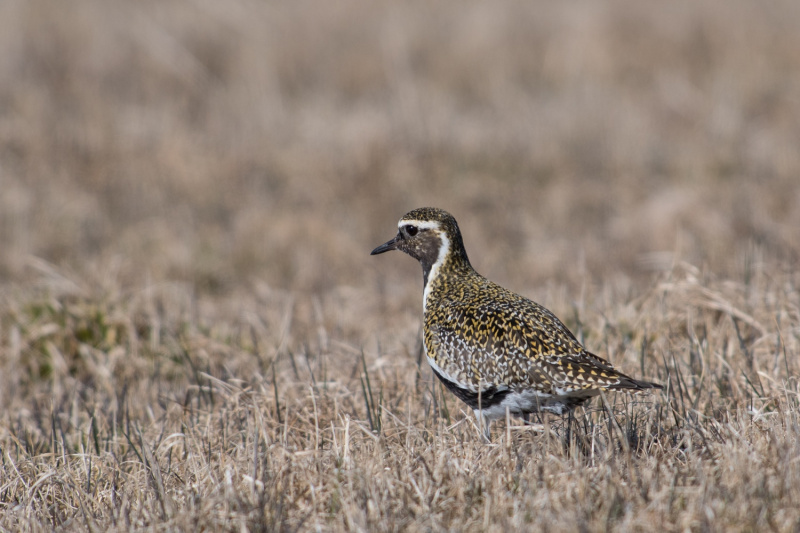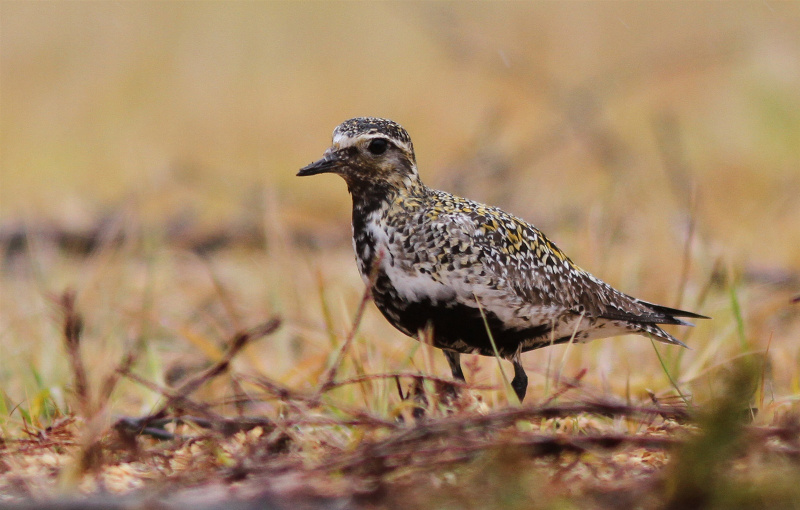Wigeon (Mareca penelope)
Golden Plover (Pluvialis apricaria)
Recognized in all plumages by its rounded head, steep forehead, short neck and contrasting white belly. Males with brown head and light yellow forehead, pinkish breast and grey body. Adult males with big white patch on forewing. Female mostly brown with bluish bill. Tail rather long and pointed, and wings narrow. Quite pale underwings, but not completely white like American Wigeon.
Sound:Male: a pleasant high pitched whistle "piiiiuuu", rapidly rising in pitch and then falling. Quite vocal. Female: a harsh "kraaa kraaa kraa" more like female diving-ducks than other dabbling-ducks.
Display-call male:
Distribution:
Wikipedia: map (se also Xeno-canto below)
Ecology:Birdlife ecology
Links:
Observation.org Latest observations
Image search Flickr NB! May give other species
CCSounds:Recorded by Patrick Åberg,http://www.xeno-canto.org ,CC license
Unmistakable in breeding plumage with golden, speckled upperparts and white-bordered black throat and belly. Male generally blacker than female, but due to regional differences, some females may be darker than males from other areas. Juveniles and birds in winter plumage, lacks the black underparts, and could be mistaken for Grey Plover. Differs from that species in more golden coloured back, less heavy bill and neck and by being slightly smaller. In flight easily told apart from Grey Plover, Pacific Golden Plover and American Golden Plover by white axillaries.
Sound:Most common call at breeding ground a disyllabic, melancholic and wailing whistle with the end falling in pitch. In song flight also a trilling, warbling and cyclic "preecaria-preecaria-preecaria". Contact call a straight, short "kluee".
Contact call at breeding ground:
Distribution:
Wikipedia: map (se also Xeno-canto below)
Ecology:Birdlife ecology
Links:
Observation.org Latest observations
Image search Flickr NB! May give other species
CC
 English
English Albanian
Albanian
 Armenian
Armenian
 Bulgarian
Bulgarian
 Catalan
Catalan
 Croatian
Croatian
 Czech
Czech
 Danish
Danish
 Dutch
Dutch
 Finnish
Finnish
 French
French
 Georgian
Georgian
 German
German
 Greek
Greek
 Hungarian
Hungarian
 Italian
Italian
 Latvian
Latvian
 Lithuanian
Lithuanian
 Macedonian
Macedonian
 Norwegian
Norwegian
 Polish
Polish
 Portuguese
Portuguese
 Romanian
Romanian
 Russian
Russian
 Sami : Lule sami
Sami : Lule sami
 Sami : North sami
Sami : North sami
 Sami : South sami
Sami : South sami
 Scientific names
Scientific names
 Serbian
Serbian
 Spanish
Spanish
 Swedish
Swedish
 Ukrainian
Ukrainian


